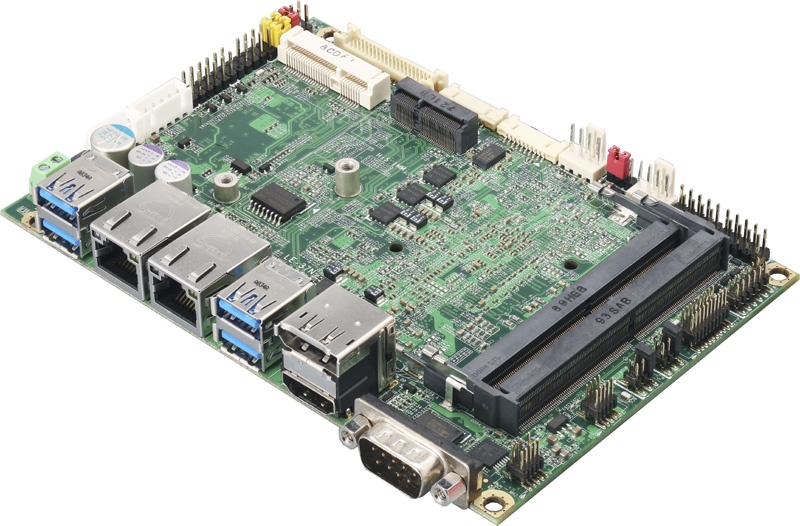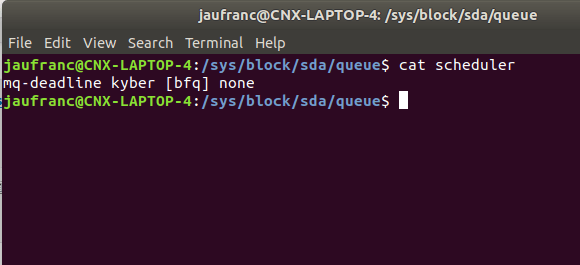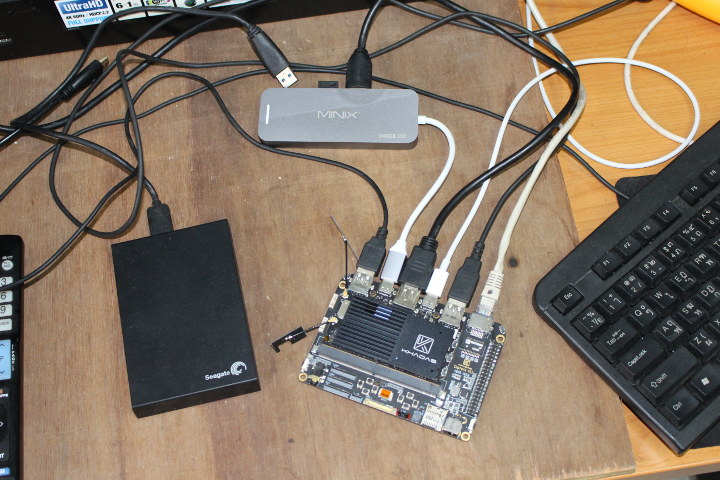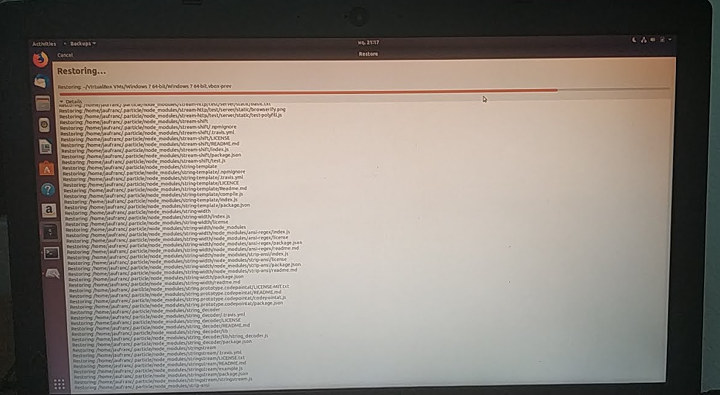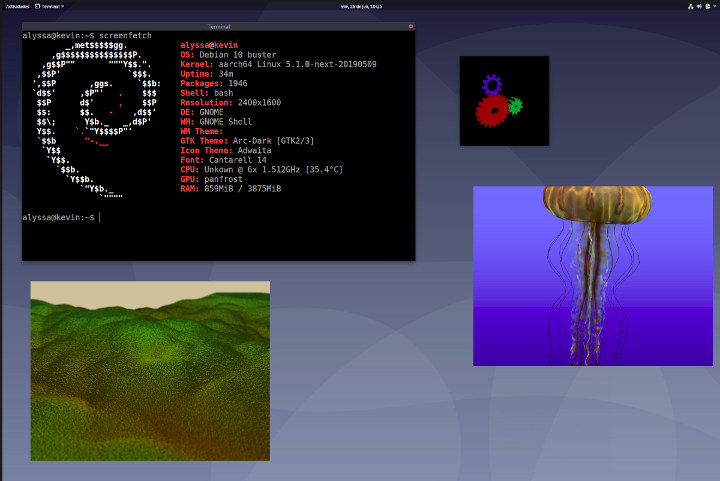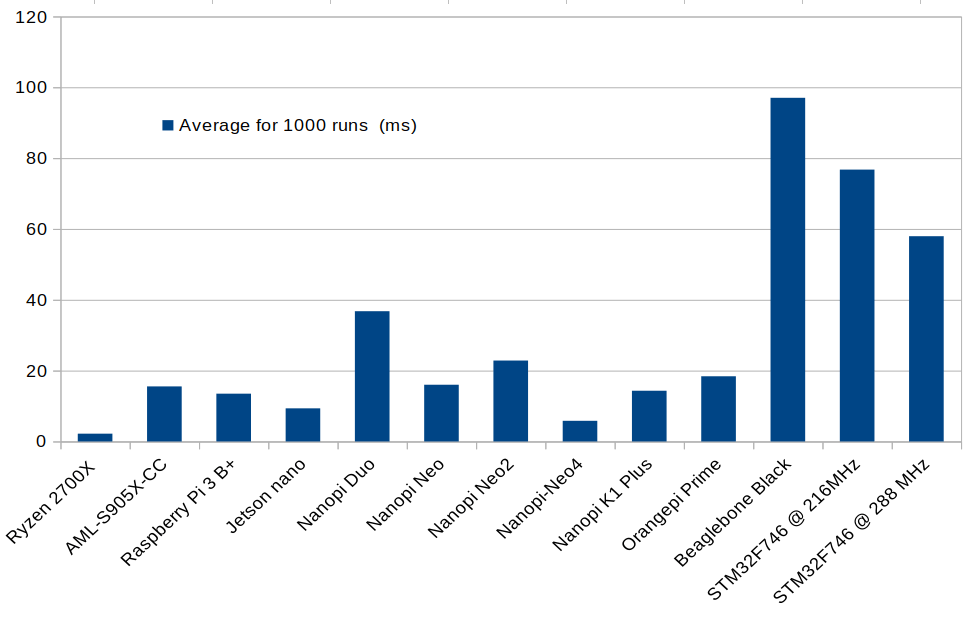I may have just written about Linaro Connect San Diego 2019 schedule, but there’s another interesting event that will also take place this fall: the Embedded Linux Conference Europe on October 28 -30, 2019 in Lyon, France. The full schedule was also published by the Linux Foundation a few days ago, so I’ll create a virtual schedule to see what interesting topics will be addressed during the 3-day event. Monday, October 28 11:30 – 12:05 – Debian and Yocto Project-Based Long-Term Maintenance Approaches for Embedded Products by Kazuhiro Hayashi, Toshiba & Jan Kiszka, Siemens AG In industrial products, 10+ years maintenance is required, including security fixes, reproducible builds, and continuous system updates. Selecting appropriate base systems and tools is necessary for efficient product development. Debian has been applied to industrial products because of its stability, long-term supports, and powerful tools for packages development. The CIP Project, which provides scalable and […]
Commell LE-37N 3.5″ SBC is Powered by Intel Whiskey Lake-U Core i7-8665UE Processor
Commell has announced its 3.5” LE-37N SBC run by the 8th generation Whiskey Lake-U quad-core processor. The board has support for triple displays, 4x USB 3.1 Gen 2, 2x SATA III 2x GbE, M2 and Mini-PCIe. Previously we reported on the ASRock IMB-1216 mini-ITX board powered by a choice of Whiskey Lake-U SoCs, as well as the crowdfunded UP Xtreme Whiskey Lake-U SBC. LE-37N Whiskey Lake-U SBC The LE-37N miniboard platform is specifically designed for the Whiskey Lake-U Intel processors with the FCBGA1528 sockets. But it was built with the quad-core, 8-thread, 1.7 GHz Core i7-8665UE with an 8MB cache, 15W TDP and 24 EU Intel Generation 9.5 HD Graphics. It supports DDR4 memory in two SO-DIMM 2400 MHz slots for up to a total of 32GB. The 8th Generation Whiskey Lake-U i7 processor is more power-efficient and supports Linux and Windows OSes. Extra Features and Display Options There is […]
BFQ (Budget Fair Queuing) I/O Scheduler Improves Linux Systems Responsiveness (Video)
Storage is normally the slowest part of a system, and operating systems such as Linux try to limit I/O access with “tricks” like caching. The I/O scheduler may also matter if you have multiple programs accessing the same drive, and in Linux 4.12 implemented two new multi-queue block I/O schedulers, namely BFQ (Budget Fair Queuing) and Kyber that are meant to improve the performance of the systems. If you’re using Linux 5.2 you may even get further improvements since performance tweaks make application start-up times under load to be up to 80% faster. I have never seen BFQ in action so far, but earlier this year, Paolo Valente, who is working for Linaro, made a video with an Acer Chromebook 15 showing Google Chrome launch time using the default mq-deadline schedule, and bfq-mq scheduler. The test involves writing a 1.5GB file to the drive with dd, and clicking on the […]
Linaro Connect San Diego 2019 Schedule – IoT, AI, Optimizations, Compilers and More
Linaro has recently released the full schedule of Linaro Connect San Diego 2019 that will take place on September 23-27. Even if you can’t attend, it’s always interested to check out the schedule to find out what interesting work is done on Arm Linux, Zephyr OS, and so on. So I’ve created my own virtual schedule with some of the most relevant and interesting sessions of the five-day event. Monday, September 23 14:00 – 14:25 – SAN19-101 Thermal Governors: How to pick the right one by Keerthy Jagadeesh, Software Engineer, Texas Instruments With higher Gigahertz and multiple cores packed in a SoC the need for thermal management for Arm based SoCs gets more and more critical. Thermal governors that define the policy for thermal management play a pivotal role in ensuring thermal safety of the device. Choosing the right one ensures the device performs optimally with in the thermal budget. […]
MINIX NEO S2 USB-C SSD Hub Review in Ubuntu 18.04 with Khadas Edge
MINIX NEO S1 & S2 are USB-C hubs with the usual HDMI and USB outputs, but also a built-in 120 GB & 240 GB SSD respectively. The company has sent me a sample of each, and in order to test the platform, I decided to do on a Khadas board running Ubuntu 18.04 with LXDE desktop environment (aka Lubuntu). I’ll start by checking out the packages’ content, before going through my experience with the MINIX NEO S2 USB-C hub in Ubuntu 18.04 with LXDE desktop environment. MINIX NEO S1 & S2 Unboxing Both packages are basically identical except for the different color, and one shows 120GB SSD capacity, while the other has 240GB The back side has some more details about the USB-C hub. I’ll focus on the 240GB model since it’s just the same, but around $13 to $20 more expensive, and it offers double the capacity, as well […]
How Do You Handle Backups in Linux? Hardware, Software, Configuration, etc…
Linux EXT-4 File System Corruption & Attempted Recovery There’s a file system corruption bug related to EXT-4 in Linux, and it happened to me a few times in Ubuntu 18.04. You are using your computer normally, then suddenly you can’t write anything to the drive, as the root partition has switched to read-only. Why? Here are some error messages:
|
1 2 3 4 |
[15882.773747] EXT4-fs (dm-4): re-mounted. Opts: (null) [15898.557605] EXT4-fs error (device dm-4): ext4_iget:4831: inode #2113041: comm rm: bad extra_isize 20100 (inode size 256) [15898.568305] EXT4-fs error (device dm-4): ext4_iget:4831: inode #2113042: comm rm: bad extra_isize 35148 (inode size 256) [15898.569774] EXT4-fs error (device dm-4): ext4_lookup:1577: inode #2557277: comm rm: deleted inode referenced: 2113043 |
What then happens is that you restart your PC, and get to the command where you are asked to run:
|
1 |
esfsck /dev/sda2 |
Change /dev/sda2 to whatever your drive is, and manually review errors. You can take note of the file modified, as you’ll likely have to fix your Ubuntu installation later on. Usually the fix consists of various package re-installations:
|
1 |
sudo apt install --resintall <package-name> |
It happened to me two or three times in the past, and it’s a pain, but I eventually recovered. But this time, I was not so lucky. The system would […]
Rock Pi 4 SBC Runs GNOME & KDE Plasma using Panfrost Open Source GPU Driver & Wayland
One of the highlights of Linux 5.2 release was support for two new Arm Mali GPU open-source drivers, namely Lima for Mali-4xx GPU, and Panfrost for the Midgard Mali-T6xx/7xx/8xx series, and the more recent Bifrost Mali-Gxx GPUs. Collabora worked on the release and was donated a few Rock Pi 4 boards from Radxa directly to work on the project. For those who are not familiar, Rock Pi 4 board is powered by a Rockchip RK3399 processor with a Mali-T860MP4 GPU that is supported by Panfrost open source GPU driver. The company managed to have Debian 10 Buster running on Rock Pi 4 using 3D graphics acceleration thanks to Panfrost drivers on both GNOME and KDE Plasma desktop environment, as well as Weston Wayland compositer. The good news is that you can build Rock Pi 4 images by yourself using Debos with the following commands:
|
1 2 3 |
git clone https://gitlab.collabora.com/rockpi/rockpi4 cd rockpi4 docker run --rm --interactive --tty --device /dev/kvm --workdir /recipes --mount "type=bind,source=$(pwd),destination=/recipes" --security-opt label=disable godebos/debos --scratchsize=8G rockpi4.yml |
Alternatively, you could directly download […]
TensorFlow Lite for Microcontrollers Benchmarked on Linux SBCs
Dimitris Tassopoulos (Dimtass) decided to learn more about machine learning for embedded systems now that the technology is more mature, and wrote a series of five posts documenting his experience with low-end hardware such as STM32 Bluepill board, Arduino UNO, or ESP8266-12E module starting with simple NN examples, before moving to TensorFlow Lite for microcontrollers. Dimitris recently followed up his latest “stupid project” (that’s the name of his blog, not being demeaning here :)) by running and benchmarking TensorFlow Lite for microcontrollers on various Linux SBC. But why? you might ask. Dimitris tried to build tflite C++ API designed for Linux, but found it was hard to build, and no pre-built binary are available except for x86_64. He had no such issues with tflite-micro API, even though it’s really meant for baremetal MCU platforms. Let’s get straight to the results which also include a Ryzen platform, probably a laptop, for […]



